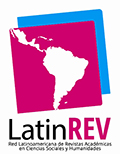A 20 años de la entrada en vigor del Protocolo de Maputo
Los derechos de la mujer en la agenda africana del siglo XXI a examen
Palabras clave:
Palabras clave: Derechos de la mujer - África - Derecho internacional - Derechos humanos.Resumen
El día 5 de noviembre de 2005 entró en vigor el Protocolo de la Carta Africana de Derechos Humanos y de los Pueblos relativo a los Derechos de las Mujeres en África, también conocido por su lugar de adopción como Protocolo de Maputo. En tanto que hito en el continente africano, y para conmemorar su vigésimo quinto aniversario, el presente artículo parte de la articulación de los derechos de la mujer tanto en la Organización para la Unidad Africana como en su sucesora, la Unión Africana, para seguidamente dedicar un análisis a los instrumentos normativos sobre dicho objeto en el sistema africano de derechos humanos, donde el referido protocolo se erige en pieza nuclear. Asimismo, ello nos servirá de preludio para transitar de la teoría a la implementación y proceder al estudio del papel de los mecanismos de garantía y control del sistema en lo concerniente a los derechos de la mujer en África. De la investigación se deriva que, a pesar de los elementos garantistas presentes en los instrumentos normativos y a pesar de la labor de los mecanismos de garantía y control del sistema, existen retos interconectados aún pendientes de superar para que el marco teórico se vea plasmado en la realidad del continente.








_(1)_.png)

_(2).png)

